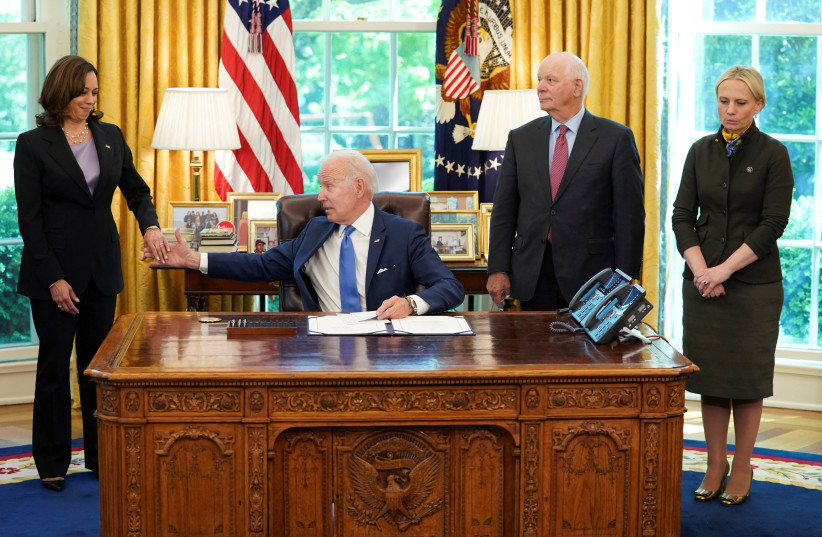President Joe Biden plans to sign a second executive order on Wednesday that asks his health department to consider permitting the use of Medicaid funds for patients who travel out of state for abortions.
The order, like his first signed in July, is meant to address the recent Supreme Court decision to end the nationwide constitutional right to abortion. It is expected to have limited impact, as Republicans in US states push a wave of laws restricting abortion, access to medication and funding for such services.
The president's actions come a day after Kansas voters rejected one such effort, to remove abortion protections from the state's constitution. The vote was a resounding win for the abortion rights movement in the first statewide electoral test since the Supreme Court ruling.
Biden's move
Last month, Biden said the Supreme Court, which is weighted 6-3 with conservative judges, was "out of control" after ruling in June to overturn Roe v Wade, ending a half-century of protections for women's reproductive rights. His first order in early July directed the federal government's health department to expand access to medication abortion and ensure that women who travel for abortions are protected.
The latest action builds on those measures. But like the first one, it remains vague about how those goals can be achieved. It asks the Health and Human Services Department to consider using funds including Medicaid, the federal and state-funded insurance program it oversees, to support low-income women traveling out of state for abortion services, a senior administration official said.

It calls on Health and Human Services Secretary Xavier Becerra to consider inviting states to apply for Medicaid waivers when treating patients who cross state lines for reproductive health services, the official said, without giving additional details.
The Hyde Amendment, a Congressional measure, states that Medicaid will not pay for an abortion unless the woman's life is in danger or the pregnancy resulted from rape or incest, making the effectiveness of the order uncertain.
It also directs the department to ensure healthcare providers comply with federal non-discrimination laws when offering such services and orders it to collect data to measure the impact of the ruling on maternal health, the official added.
The president will sign the order at the first meeting of the interagency task force on reproductive healthcare access, which was formed in July.
Senate Democrats rejected Biden's call to lift the chamber's "filibuster" rule requiring 60 of the 100 senators to agree on most legislation to allow them to pass a law establishing a national right to abortion.
In the evenly divided Senate, US Vice President Kamala Harris can cast a tie-breaking vote.
Since then Biden has pivoted to urging voters to elect more Democrats to Congress in the Nov. 8 midterm elections, when Republicans are favored to win back a majority in the House of Representatives and perhaps also the Senate.
Democrats hope the issue may help drive voters to the polls in November.
Protecting abortion rights is a top issue for women Democrats, Reuters polling shows. More than 70% of Americans think the issue should be left to a woman and her doctor.
On Tuesday, Biden's Justice Department sued Idaho to block a state law that it said imposes a "near-absolute ban" on abortion, marking its first legal challenge to state abortion laws since the Supreme Court ruling.
